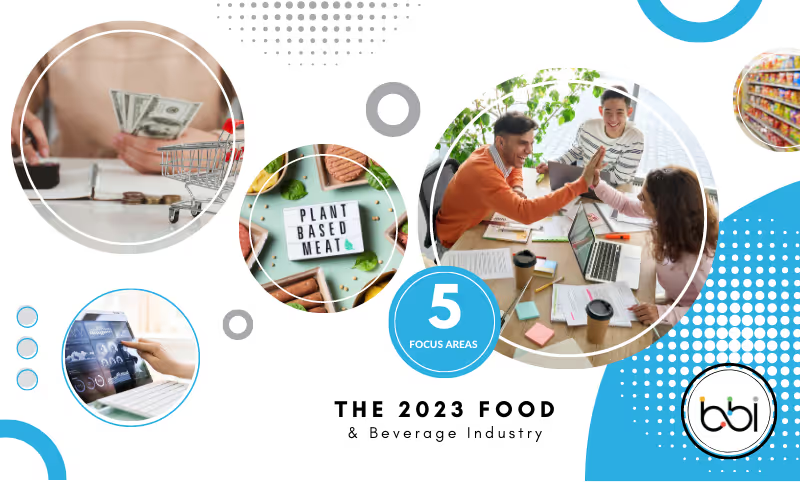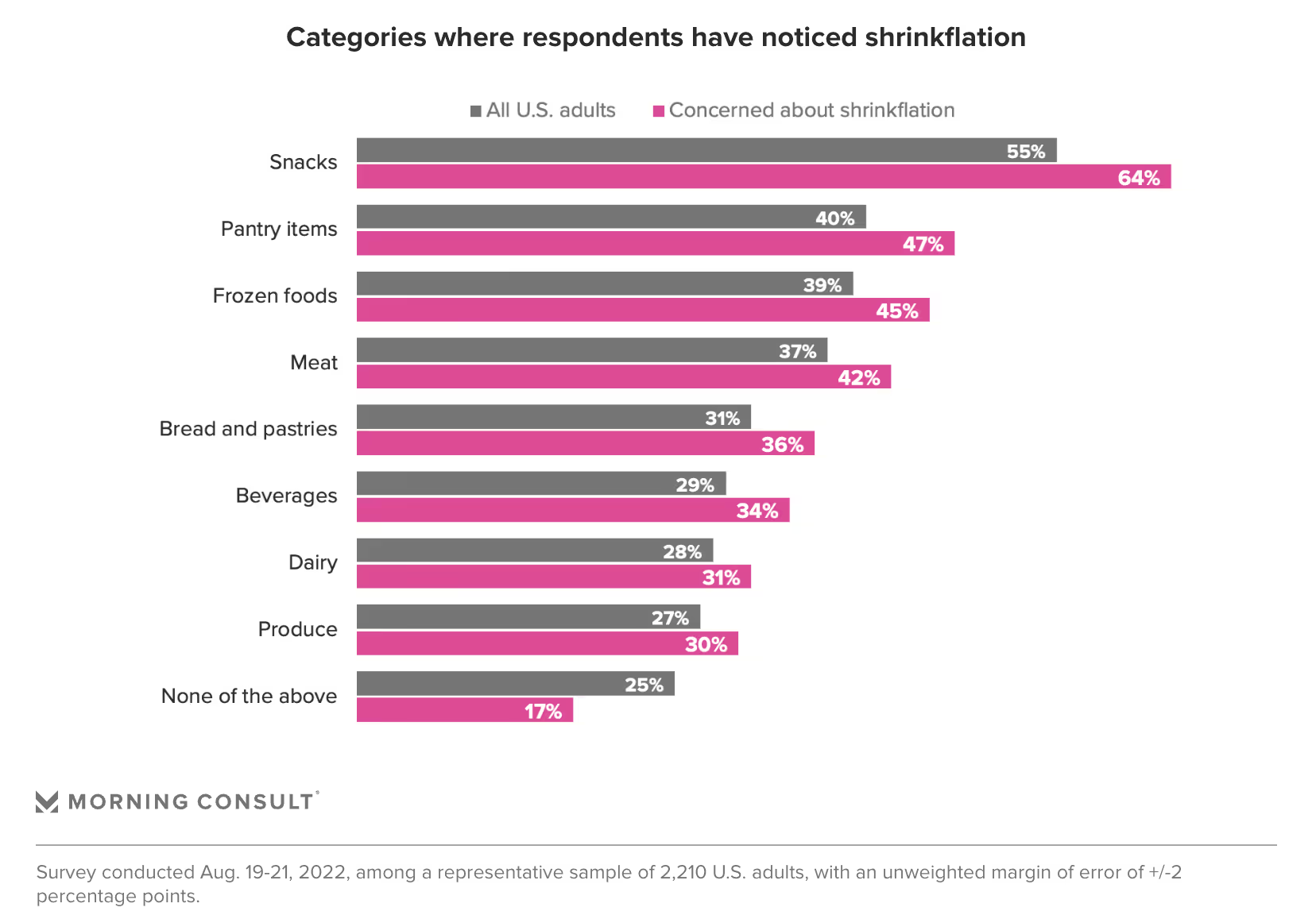Top 5 Focus Areas for the 2023 Food and Beverage Industry

As we dive deeper into the 2023 food and beverage industry, certain challenges and opportunities will exist.
Focus Area No.1 - Impacts of Inflation.
It depends on what happens to the macroeconomy, but demand for food and beverage products has remained high, even after price increases. But, in the past few months, there is more evidence that consumers are changing their spending patterns, including purchasing products less often than they used to or switching to a different brand to save money. They’ve also noticed "shrinkflation", and shoppers will likely be extra sensitive to perceived package or product changes, decreasing in size or quantity.


Focus Area No.2 - 2023 will be the year of value.
Consumers want premium products that are also affordable. Food and beverage brands must provide value beyond price to succeed with consumers this year. As the cost-of-living crisis continues, brands can succeed by combining economic benefits with clear health and sustainability goals.

Focus Area No.3 - Digital Transformation.
Digitalization can mean many things in the food and beverage industry. It’s often seen as an IT initiative rather than an overarching business strategy. It ranges from big data and predictive maintenance to artificial intelligence, machine learning, production line automation, and robotics. Digital transformation will be a critical business strategy that touches every process in the plant.

Focus Area No.4 - Gen Z in the workplace.
A labor shortage has plagued manufacturing for years. Still, it seems that many food and beverage companies have only started to understand that the old working methods won’t cut it. To compete for top talent, they need to change how they operate to appeal to a new generation of workers who value flexibility, work-life balance, mental health support, diversity, and company culture more than previous generations.

Focus Area No.5 - The Plant-Based dilemma.
Plant-based meat alternatives are expensive, which makes them an even tougher sell when inflation is high. After rocket-fueled growth, plant-based meat alternatives’ sales flatlined and started to decline. Plant-based meat alternatives must start appealing to consumers who eat meat but want to reduce their consumption. Personal health and environmental impact are the top two reasons people eat less meat, so plant-based meat companies must ensure they deliver on those two promises.
Source: The Food Industry Executive a leading source of food industry news.
At BBI, we simplify the complexity of retail analytics by taking complex data and turning it into insights you can use to grow your business.

.jpg)






